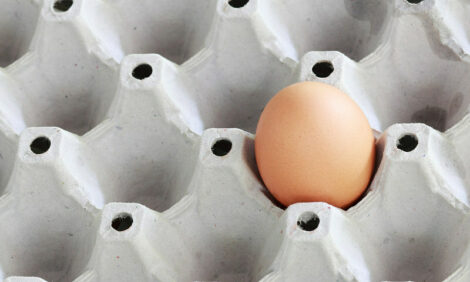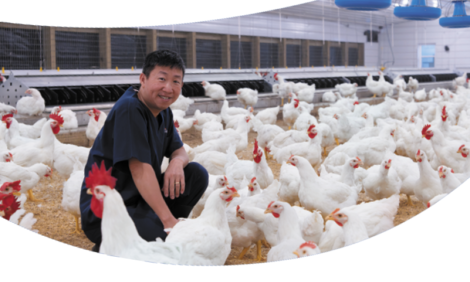



Impacts of the Future EU Layer Cage Ban
The EU cage ban, due to come into force in 2012, will cut laying hen numbers and increase egg deficits in the European Union, writes Terry Evans for ThePoultrySite.Layer numbers in the European Union will continue to decline as a result of the impacts of the banning of conventional cages according to Professor Hans-Wilhelm Windhorst, the International Egg Commission's Statistical Analyst.
Writing in the IEC's International Egg Market Annual Review, Professor Windhorst stated that, while egg production in the EU fell by 2.5 per cent between 2002 and 2007, the rate of decline was much faster in countries that either prohibited conventional cages or that implemented Directive 1999/74/EC earlier than in 2012 such as in Germany, which did so earlier this year. He also asserted that this observation was true for countries in which food retailers have decided no longer to stock cage eggs, such as in the United Kingdom and the Netherlands. In general, the demand for barn and free-range eggs had increased.
* "Legislators ... did not fully consider what impacts the banning of conventional cages would have on the future development of egg production and the resulting egg deficit" |
|
Professor Windhorst
|
He pointed out that the switch from conventional cages to enriched cages, floor management or free-range systems would inevitably lead to higher production costs. Economists at Wageningen University in the Netherlands have shown that production costs in enriched cages would increase by some eight per cent over those of conventional cages. In the German small colony system (known as 'Kleingruppenhaltungen' in which small group production similar to the enriched cage), the extra costs would be of the order of 10 per cent, while switching to the barn system in the Netherlands would result in costs rising by 21 per cent.
The situation in Germany is particularly bad, according to the review. Under the EU Directive, individual member countries have been allowed to pass stricter legal regulations. This was the case in Germany and in Austria, where cages will be baneed from next year. Originally, the German Bundesrat had decided not to allow enriched cages but then altered the decision to allow the small colony system, which meant that up to 60 hens could be kept in a facility similar to that of an enriched cage. However, Germany's food retailers, under pressure from animal welfare groups, decided against stocking eggs produced under this system. This had resulted in a dramatic cutback in the number of egg farms and layers in Germany. Additionally, by the end of 2009, a further decrease of some six to seven million birds is anticipated.
"This will result in growing egg deficit such that in addition to about 5.7 billion eggs imported in 2008, a further two billion will have to be imported to meet domestic demand," Professor Windhorst maintained.
"On the cost of switching away from conventional cages, an investment as high as €6.1 billion would be required. In Germany alone, some €612 million would be needed to meet the existing legal regulations by the end of 2009."
He believes that it is not realistic to assume that this capital would be available under present financial and economic conditions, and he wonders how the EU would react when the member countries failed to fulfil the requirements of the Directive.
He observed that it was obvious that legislators in the EU as well as at the country level in Germany did not fully consider what impacts the banning of conventional cages would have on the future development of egg production and the resulting egg deficit.
"From 2012 on, the EU will be an egg deficit region requiring egg imports from countries with much lower animal welfare standards. While nothing will be gained for the welfare of the layers in those countries, the quality and safety of the imported eggs may be lower than those produced in the EU," Professor Windhorst added.
The long period between the passing of the EU Directive and the final decision on how an enriched cage should be equipped had postponed necessary investments as egg industries have been unwilling to invest in systems that might not be permitted in the future.
Because German retailers would not stock eggs from the small colony system, large egg producers in that country realised that they would not be able to switch to floor management systems by the end of 2009. This would result in "Financial losses for production companies, higher consumer prices and increasing imports of shell eggs and egg products," Professor Windhorst concluded.
November 2009








